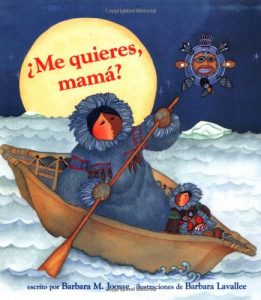Chirchir just wants to make herself useful like all her other family members. But she drops Mama’s water bucket, spills Kogo’s tea, and sends Baba’s potatoes tumbling down the hill. but each of their tasks proves too challenging for her.Isn’t there something that Chirchir does best?
Early Years (ages 2-6)
Me Quieres, Mama?
Where is Strawberry Princess Moshi?
This is a search-and-find game book all about Strawberry Moshi and her friends. Strawberry Moshi wants to go to the ball, but she needs to find the right costume to dress up as Strawberry Princess Moshi. Kids will love helping her look for the proper clothes, get to the ball, and locate her Prince Moshi, of course!
Where Is Strawberry Mermaid Moshi?
For children who love to search and find and adore that cute Japanese kawaii style here comes another pair of fun activity books about Moshi Town. Strawberry Mermaid Moshi has been invited to a magical wedding under the sea. Children are invited to join her on an underwater adventure with her friends, but are their eyes sharp enough to help her find her friends first?
What Are You Doing?

It’s the first day of school, but before he goes Chepito runs outside to play. He comes across all kinds of people in his neighborhood — a man reading a newspaper, a young girl enjoying a comic, a couple of tourists consulting a guidebook, an archeologist studying hieroglyphics. “Why, why, why?” he sings, and they each have an answer for him. Later that day Chepito discovers for himself that reading is catching, and he even brings home a book to “read” to his younger sister.
Cuckoo/Cuc£: A Mexican Folktale/Un Cuento Folkl¢rico Mexicano
Good Night, World
Good night sun and other stars, good night Saturn, Venus, Mars. Elsewhere in the world it’s light, it’s morning there, but here it’s night. As the sun sets from east to west, this book takes children on a magical round-the-world journey to bid good night to the world’s natural wonders, from plants and animals to mountains, oceans, and wide desert plains.
This Baby
Kate Banks’s lyrical poetry pairs with Gabi Swiatkowska’s playful dreamlike images to create this must-have book for all children who are about to be new siblings. While Mama’s busy knitting a wardrobe for her unborn baby, big sister is preparing in her own way: imagining, asking, wondering what this baby will like. As the seasons pass, this baby grows, too–and soon big sister will have the answers to all of her questions.
Benedict
Benedict, also known as Benny, is tired of living in such a hot place. And so he cleverly springs on his coiled tail from one habitat to another. He visits the North Pole, the desert, the jungle and finally the ocean in search of perfection.
When I Love You at Christmas
Simply tie the front and back covers of this 14-page board book together, and get ready to celebrate! The two envelopes inside contain everything you need to decorate: sheets of stickers, shiny paper, and ornaments to cut out and color, plus tips for creating even more decorations for your very own tree.


